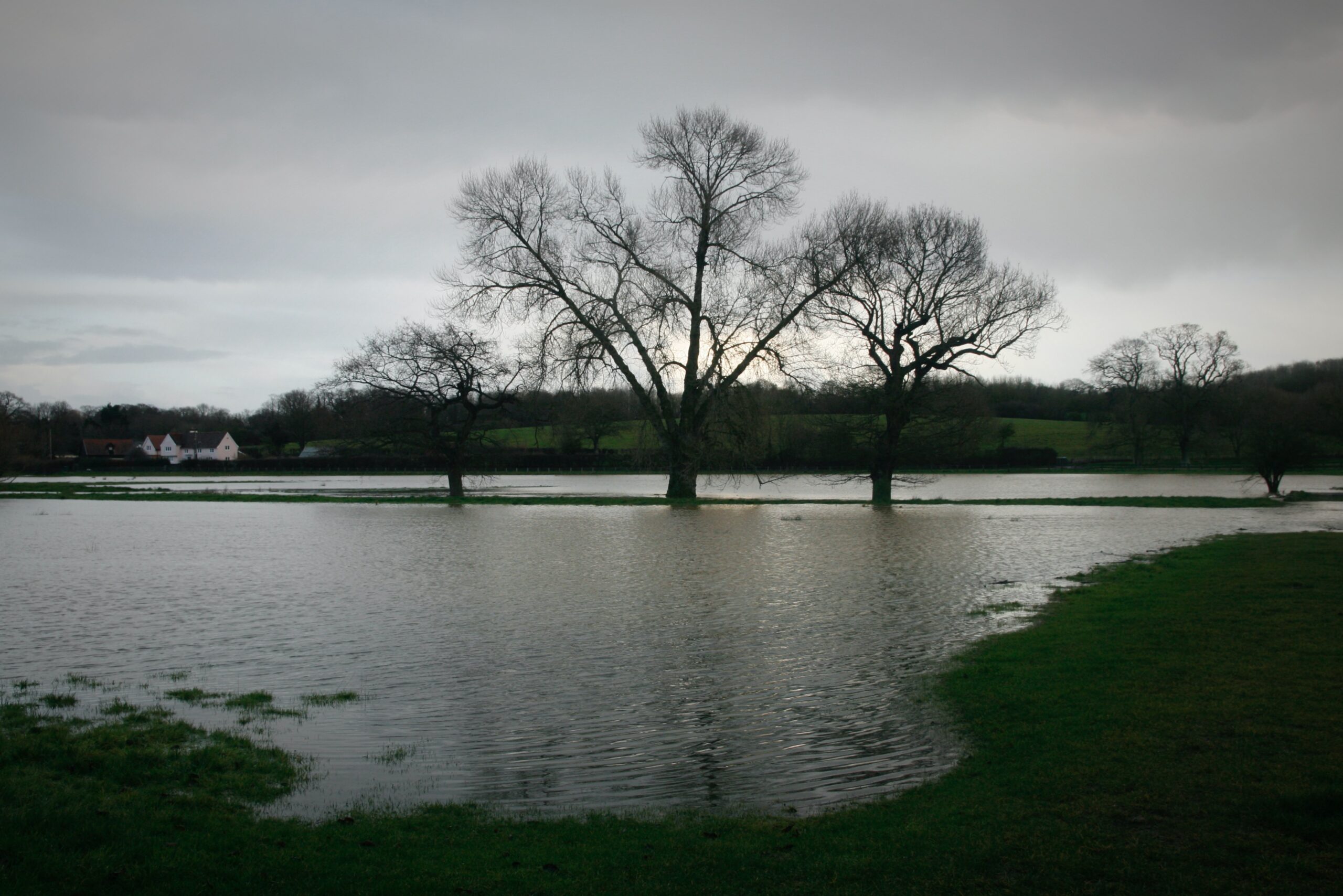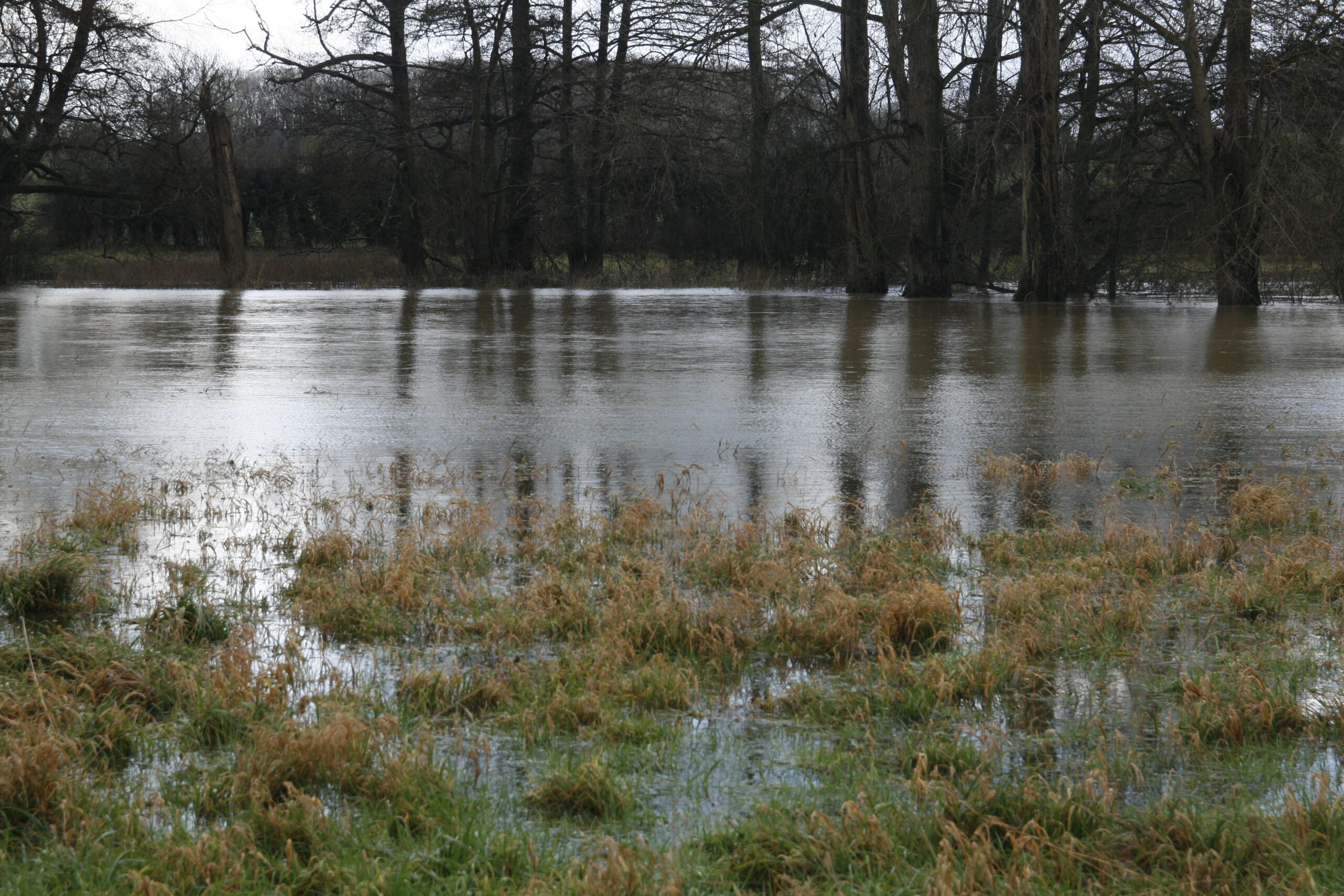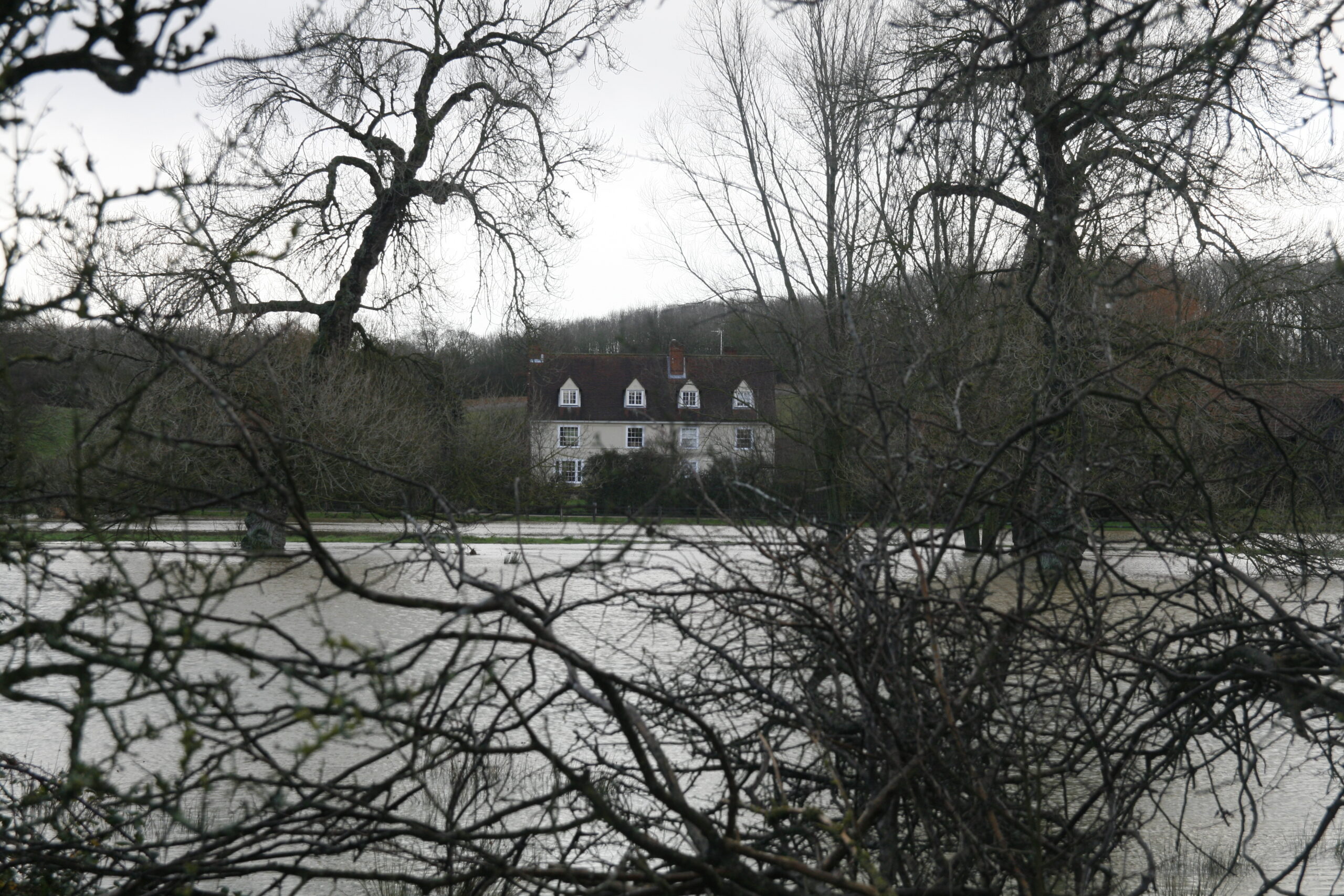Everywhere, the sound of it: rushing along the winter ditches, sandy brown and muscular; gurgling out of old clayware field drains and trickling into roadside gratings half-blocked by mud and leaves. It’s been wet for what feels like weeks now, and Suffolk’s lowland fields are waterlogged. There’s nowhere, any more, for the rain to go.
Christmas Eve brought a bitter north-westerly wind that swept away the strange, unseasonal mildness of the week before: evenings when I hadn’t needed to light the fire, or had done so out of habit only to have to open the back door a crack, the cottage far too warm. So when I woke on the 24th I was glad of the cold, hoping it might help things at least feel festive; but when Scout and I ventured out after breakfast the wind made walking hard, distant gunshots spooked the dog and my chilled hands fumbled at the camera controls. I came back without a single image worth sharing. And then the sleet and freezing rain blew in.
I wasn’t expecting much when I headed out after lunch into what I hoped would prove a break in the weather. More shooting, closer this time, meant I left Scout indoors; I stuffed my camera inside my waterproof coat to protect it from squalls and picked my way gingerly through slick, slippy mud down towards the river, a slow, narrow and twisty stream sunk between alders and willows and edged by rich green watermeadows on which, in summer, a beef herd grazed.
The path runs through a narrow wood, on the other side of which is a meadow; you can cross the river in a few paces there, via a little wooden bridge. But as I stepped out of the wood I realised there was no bridge to be seen, and no meadow either. Our slow little stream was now a fast-moving river perhaps sixty or seventy metres wide.
‘Fuck me,’ I whispered under my breath. The sight of it was shocking and oddly uncanny; I knew that nothing was in danger, the cows long under cover and none of our ancient village houses on the flood plain, previous generations being much cleverer about these things than we often are today. The water I was gazing at was not ‘out of place’: the watermeadows were doing their job perfectly. And yet the sight of so much sudden power and motion and what felt like intention knocked the wind out of me. There is no arguing with water, and it was a reminder of the smallness and transitoriness of all our human plans.
After only a few moments sploshing around in the stiller margins and taking photos I realised the water level was still rising, and I turned back into the wood. Blue tits, great tits and wrens haunted the understorey, sounding continuous alarms to one another – whether at the women with the camera, or the rising river water, I couldn’t say.



